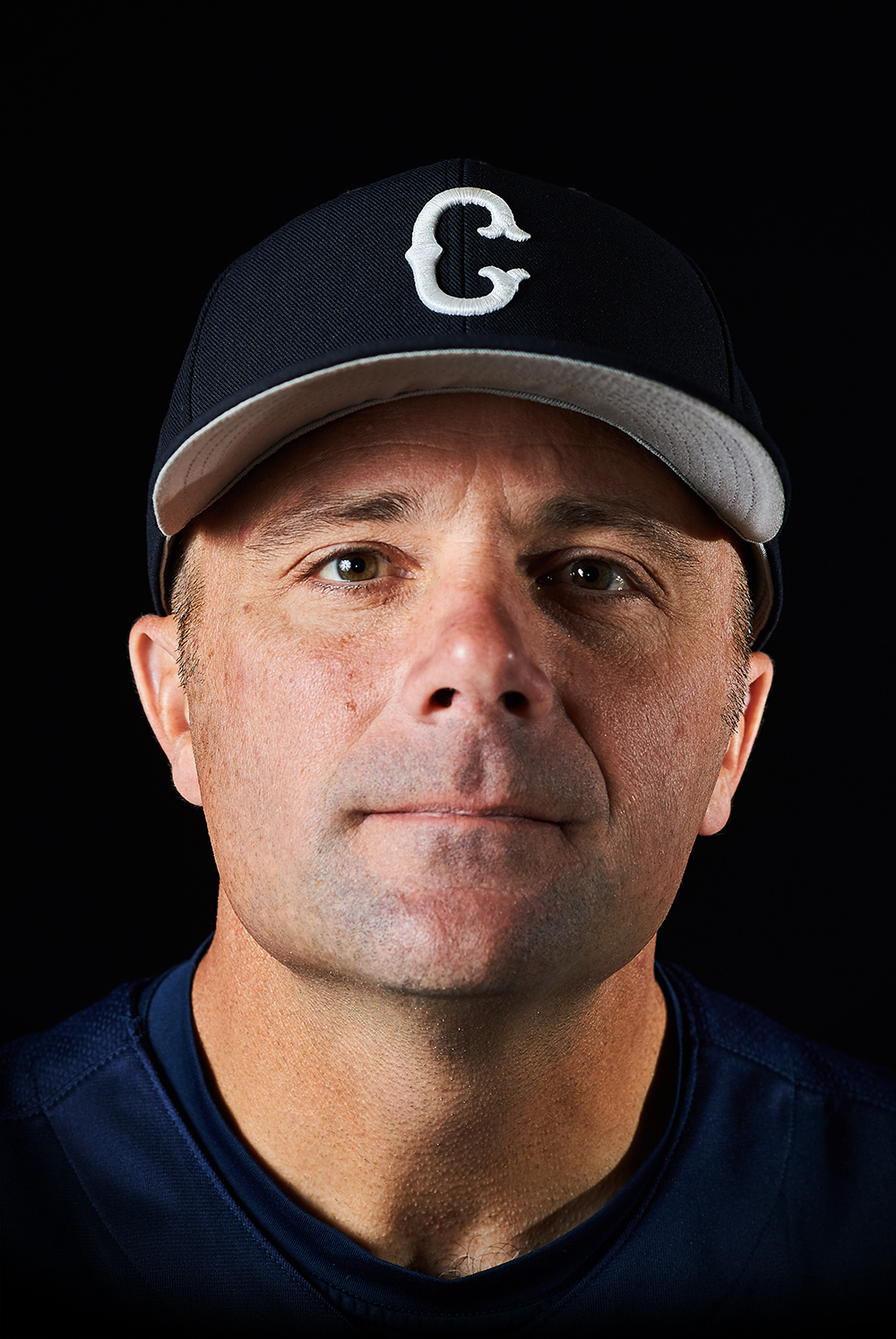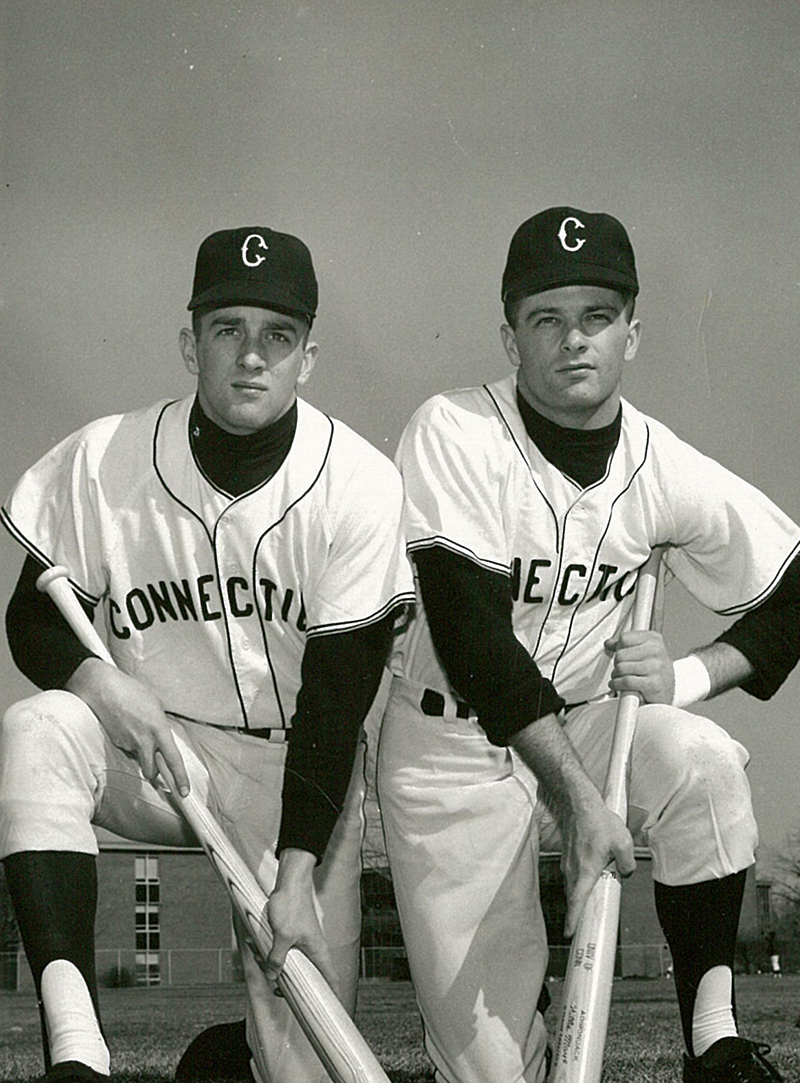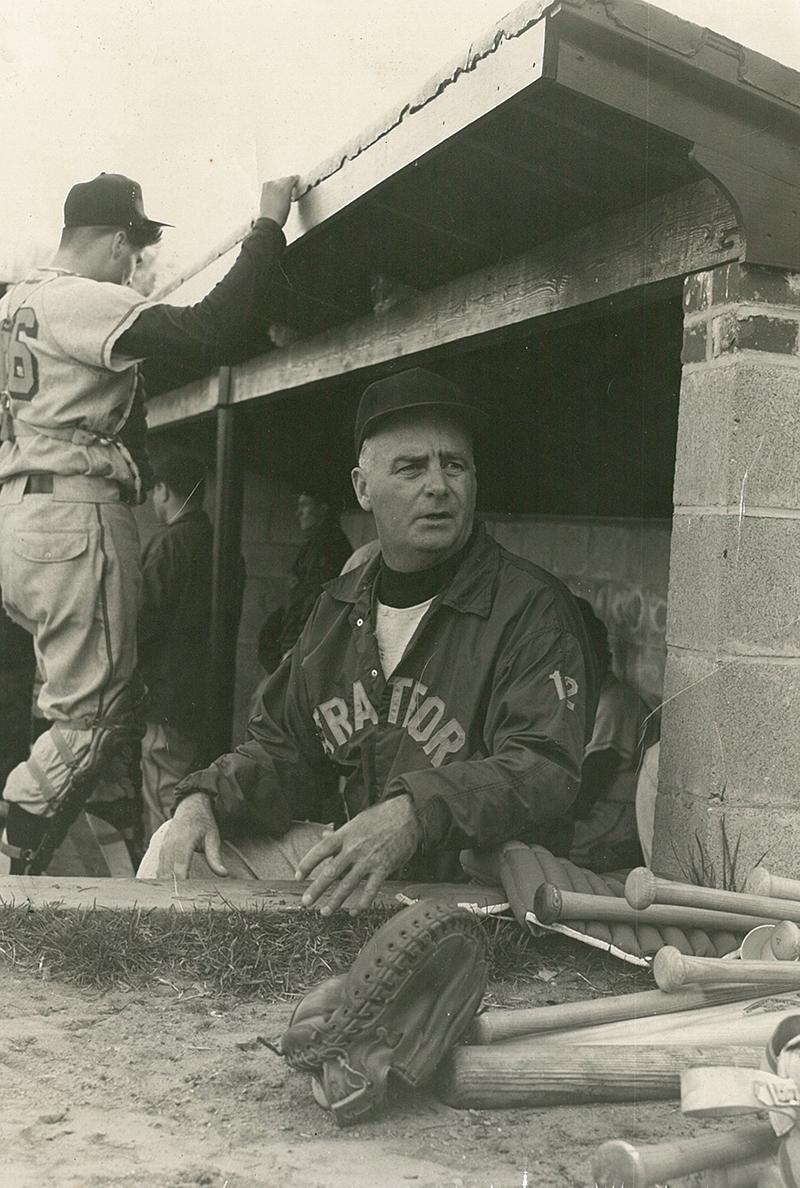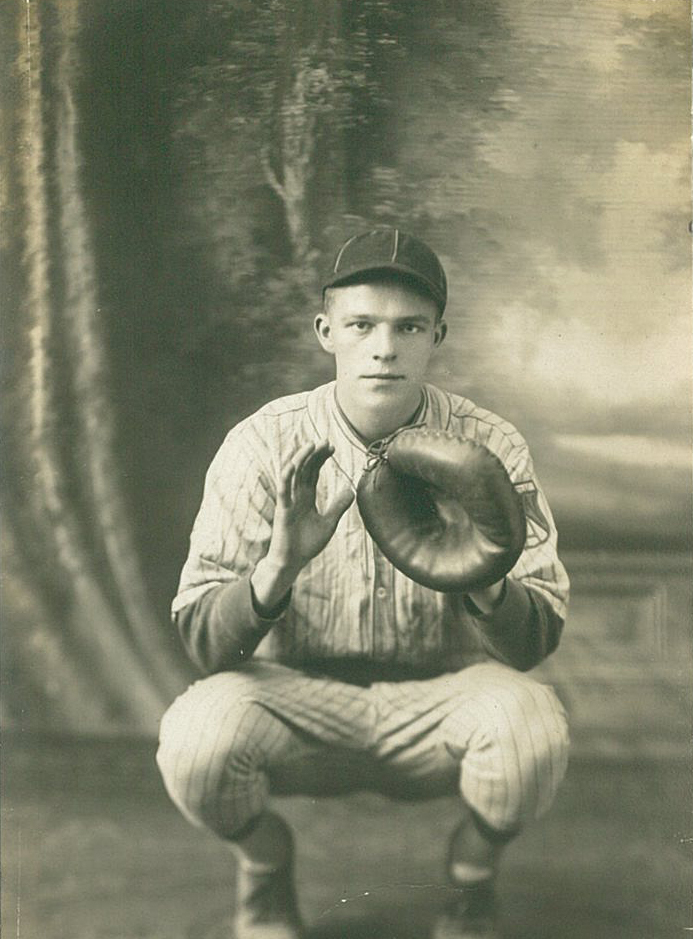

THE QUIET GENIUS OF
Cold-weather baseball teams aren’t supposed to have the kind of success Jim Penders has had in his 14 seasons as head coach of the Huskies. It’s in his DNA, other coaches insist ”” and they may be right.
By Kenneth Best
Photo By Peter Morenus

THE QUIET GENIUS OF
Cold-weather baseball teams aren’t supposed to have the kind of success Jim Penders has had in his 14 seasons as head coach of the Huskies. It’s in his DNA, other coaches insist ”” and they may be right.
By Kenneth Best
Photo By Peter Morenus




From top, photos Penders keeps on his desk: Dad Jim E. ”˜66 (ED) and Uncle Tom ”˜67 (BUS) on the Huskies’ 1965 College World Series team; Grandfather Jim coaching Stratford High; maternal Grandfather Sal Cholko.
Baseball is in the blood of UConn Huskies baseball coach Jim F. Penders ’94 (CLAS), ’98 MA ”” not just figuratively but also, one may argue, literally.
His father, Jim E. ’66 (ED), a four-time championship high school baseball coach and national coach of the year at East Catholic High School in Manchester, Connecticut, and his uncle, Tom ’67 (BUS), who would coach four different Division I teams to the NCAA Basketball Tournament, played together on the Huskies’ 1965 College World Series team. His paternal grandfather, Jim W., was the longtime championship baseball coach, with four state titles, at Stratford (Connecticut) High School, where the playing field at Longbrook Park now bears his name. In the 1930s, Coach Penders’ maternal grandfather, Sal Cholko, was a catcher for the state’s American Legion Baseball championship team and later played in the Bridgeport Industrial League. And his brother, Rob, serves as the baseball coach at Division II St. Edwards University in Austin, Texas.
This impressive lineage makes Jim F. Penders a lifer, a characterization considered high tribute in a sport that began in its modern form in the mid-19th century and was described by the poet Walt Whitman as “our game ”“ the American game.”
Now in his 14th season as the Huskies’ head coach, Penders will have been part of UConn baseball for 25 of the past 27 years ”” as a student-athlete, assistant coach, or head coach. He is a four-time conference Coach of the Year who has led the Huskies to 30 or more wins in 11 of 13 seasons, while developing 39 players either drafted or signed by professional baseball teams ”” including nine who have won All-America honors.
In 2016, the Huskies won their first American Athletic Conference title and made their fourth NCAA Tournament appearance in the last seven seasons despite being a cold-weather team competing against conference opponents based in primarily warm-weather locations. Penders’ record of 477-336-4 is second only to that of his mentor, Andy Baylock (556-492-8), who coached all of the Penders men during his long career as Huskies head coach.
Drawn into Coaching
Penders’ earliest memory is, naturally, one of baseball. He was 3 years old, and his father’s East Catholic team had just won its first state championship at Yale Field in New Haven. Someone boosted young Jim over the fence so that he could run to hug his father, but by the time he was over the fence, the team had hoisted the elder Penders up in celebration and was carrying him away. “I was crying my eyes out, wondering where they were taking my daddy,” he says. “It was traumatic, and I remember it clearly.”
Better memories began to take shape as Penders started to play the game himself. He and his younger brothers, Mike and Rob, organized neighborhood Wiffle ball games in the backyard of their home in Vernon. They made a field by putting up fences, foul lines, and a scoreboard, even improvising a public address system to announce the game using walkie-talkies. After East Catholic games, where they served as batboys, the Penders boys would quickly move onto Eagle Field and run around the base path while their father took down the American flag before speaking with news reporters.
And though there were always used bats, balls, and gloves around the Penders house, the coach living there never put pressure on his boys to play the sport.
Penders doesn’t remember his father giving him any instruction in the game of baseball until he was his player as a freshman in high school.
“He made his sons seekers by not shoving it down our throats. We always emulated him, wanted to please him, but it was never that push. He told us to study and do well in the classroom. That’s where he pushed us, but never in athletics,” says Penders.
He says he couldn’t help but want to pursue the game, because his dad’s former players would show up at their house. “I think that drew me eventually into coaching.”
A greater baseball influence on the 8-year-old Jim would be his grandfather, Sal Cholko, whose photo ”” in a catcher’s crouch holding up a glove ”” sits on Penders’ desk alongside images of the elder Penders men during their playing days, surrounded by baseball memorabilia on the walls and shelves in his office. During summers when the Penders boys visited their grandparents in Stratford, there would be a game of catch in the backyard; Cholko would turn young Jim’s hat around, as a catcher would do in order to put on a mask. Later, when the young Penders tried out for an instructional league team, one of the coaches asked who wanted to be a catcher. “No hands went up,” Penders recalls. “I figured I’d get to play if I raised my hand. I liked getting dressed in the gear.”
An all-state catcher at East Catholic, where he also served as senior class president, Penders went on to become a four-year letter winner for the Huskies and a co-captain for the squad that won the Big East Conference tournament. He played in the NCAA championships his junior and senior years and earned First Team All-Northeast, All-New England, and All-Big East honors during his senior season, when he hit .354 with seven home runs and 46 runs batted in.
Between his junior and senior years, Penders served as an intern for U.S. Rep. Sam Gejdenson of Connecticut and, after graduating with a degree in political science, he returned to Washington, D.C., to work as a political fundraiser for U.S. Sen. Tom Harkin of Iowa. During that time he met President Clinton. However, he soon found himself thinking about baseball.
“I was feeling a pull to do what my dad did,” says Penders. “I always use the line from ”˜Godfather III’: ”˜Just when I thought I was out, they pull me back in.’”
He called his former coach, Baylock, asking whether he could be a graduate assistant coach. Baylock knew the family coaching history, had coached Penders’ father and uncle, and recognized Penders’ commitment to academics.
“On my teams, if you made dean’s list, you got a steak dinner at my house,” Baylock says. “He was always at the dinner table.”
The timing turned out to be right, as part-time UConn assistant coach Marek Drabinski ’90 (BUS), ’94 MA, who played two years in the Atlanta Braves organization, had just been hired as head coach at Brown. Penders returned to Storrs as a graduate assistant coach while pursuing a master’s degree in education. Two years later, he became the Huskies’ first full-time assistant baseball coach.
For the next seven years, Penders recruited student-athletes, served as hitting coach, and worked with catchers and outfielders. When Baylock decided to step down as head coach in 2003, Penders moved to the next seat over on the dugout bench.
“Like they say, moving over 12 inches on the bench is a giant leap ”” realizing you don’t know everything that the head coach does until you had to do it,” Penders says. “That first year, in December, I’m thinking, what am I supposed to be doing today? It was trial and error, having to have my antenna up on everything, realizing the buck stops with you.”
Leave a Reply